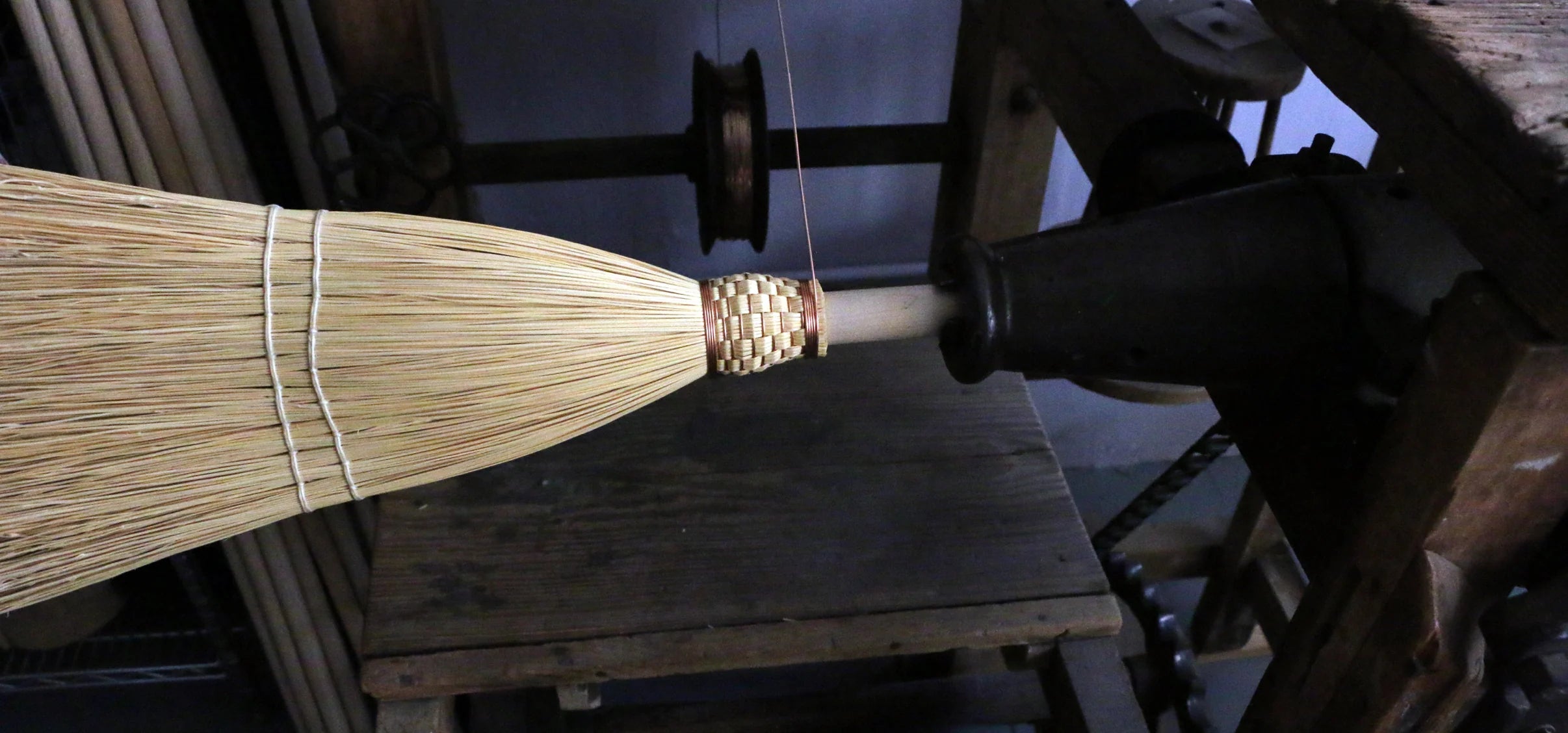Gifting has never been easier
Perfect if you're short on time or are unable to deliver your gift yourself. Enter your message and select when to send it.
Story by Diana Keeler

Custodian founder Erin Rouse was inspired by Shaker design to begin her custom-made broom company, while Forager Co. Founder Bryan Norris found inspiration for his exquisitely wrought dust pans and brooms by collaborating with a community of Amish craftsmen. Although geographically hundreds of miles apart, Erin and Bryan are united by a shared passion for turning plain, utilitarian tools (like brooms) into objects that are also beautiful and thoughtful. And they both love the purposeful act of sweeping.

In troubled times, repeated acts take on new significance —and those acts, with the right tools, can become a sort of ritual practice of home-keeping and custodianship. Look no further for proof than the work of Erin Rouse, who has devoted her recent creative work to the craftsmanship of brooms. Rouse studied sculpture at Rice University in Texas before relocating to New York City, where she held various positions in close proximity to beautiful objects: at an auction house, within the editorial department at Martha Stewart Living, and then for renowned New York lighting designer Lindsey Adelman, who covers workshop expenses for employees devoted to learning new skills.
Pictured: Custom broom maker, Erin Rouse, at work in her Brooklyn studio.

An interest in Shaker design heralded an interest in broom-making, and to delve into it more deeply, Rouse tracked down “a very cranky old Maine guy” living in New Hampshire to provide instruction. “I did intensive broom lessons with him for a week, then spent months scouring the Internet —finally finding this Yahoo chat group where all the broom-makers in America meet,” says Rouse, who found broom-making a good fit from the start. “It’s really low technology. I'm not a computer wizard; I’m more of a luddite —and broom technology hasn't evolved much since the 1800s.” And so, Custodian, her line of custom-made brooms, was born.
Pictured: Erin’s 1890 kick winder broom machine.
– Erin Rouse, Custodian

In addition to their obvious practical value, Rouse views brooms both as objects of beauty (“their shape is so attractive, with the contrast of the nice, smooth handle and the wildness of the fan”) and as “objects of transformation—they're associated with witches and changing your energy.” There’s additional energetic realignment inthe simple act of sweeping. “There’s something really important about taking care of the space that you're in, about being a custodian of your space,” she says. “I just think it feels so good and soothing, to get off the couch and move your body and do something purposeful.”
Pictured: A reinterpreted Turkey Wing broom with cotton cord.

Broom samples with different colored handles and natural-dyed sorghum brush.

For Bryan Norris, who runs his Forager Co. in Lancaster County, Pennsylvania, the tools of custodianship provide not just a design challenge but an opportunity for creative collaboration with his community: Amish artisans. “My way of working is to seek out what someone is good at —and if [that skill] resonates with me, I’m inspired to collaborate,” Norris says. “I work with an Amish harness maker, broom-maker, rug maker, and furniture makers.” Some of those talents are evident in Forager’s collection of exquisitely wrought dustpans and hearth broom, rendered in wood and leather. “These pieces for Bloomist share a deep connection to the land, which resonates through many Amish-made goods,” he says. “The dustpan and broom are great examples of the things we use often that can be beautiful and thoughtful, rather than plain and utilitarian.”

– Bryan Norris, Forager Co.
Like Rouse, Norris returns to the simple act of sweeping as a form of ritual. “Sweeping is a form of walking meditation just as much as it’s a form of exercise for our bodies,” he says. “It establishes that mind-body connection, all while accomplishing a task.” Such an act has an important place during a time of international emergency and heightened tension. “I think that for many people, the acts of cleaning and reorganizing —both in a mental and physical way — have become a part of this corona living.
For some it will be an option, and sadly for others, it will be a very hard fact,” he says. “The symbolism of a clean sweep is perhaps more important now than ever: Will the planet look cleaner after all of this unfolds? Will our homes?” With careful practice and mindful repetition, the answer could be yes —if we want it.
Your Shopping Cart is Empty
Browse our latest collection or check your saved favorites to add more items to your cart.




Manage your profile, track your orders, and enjoy a seamless shopping journey with us.